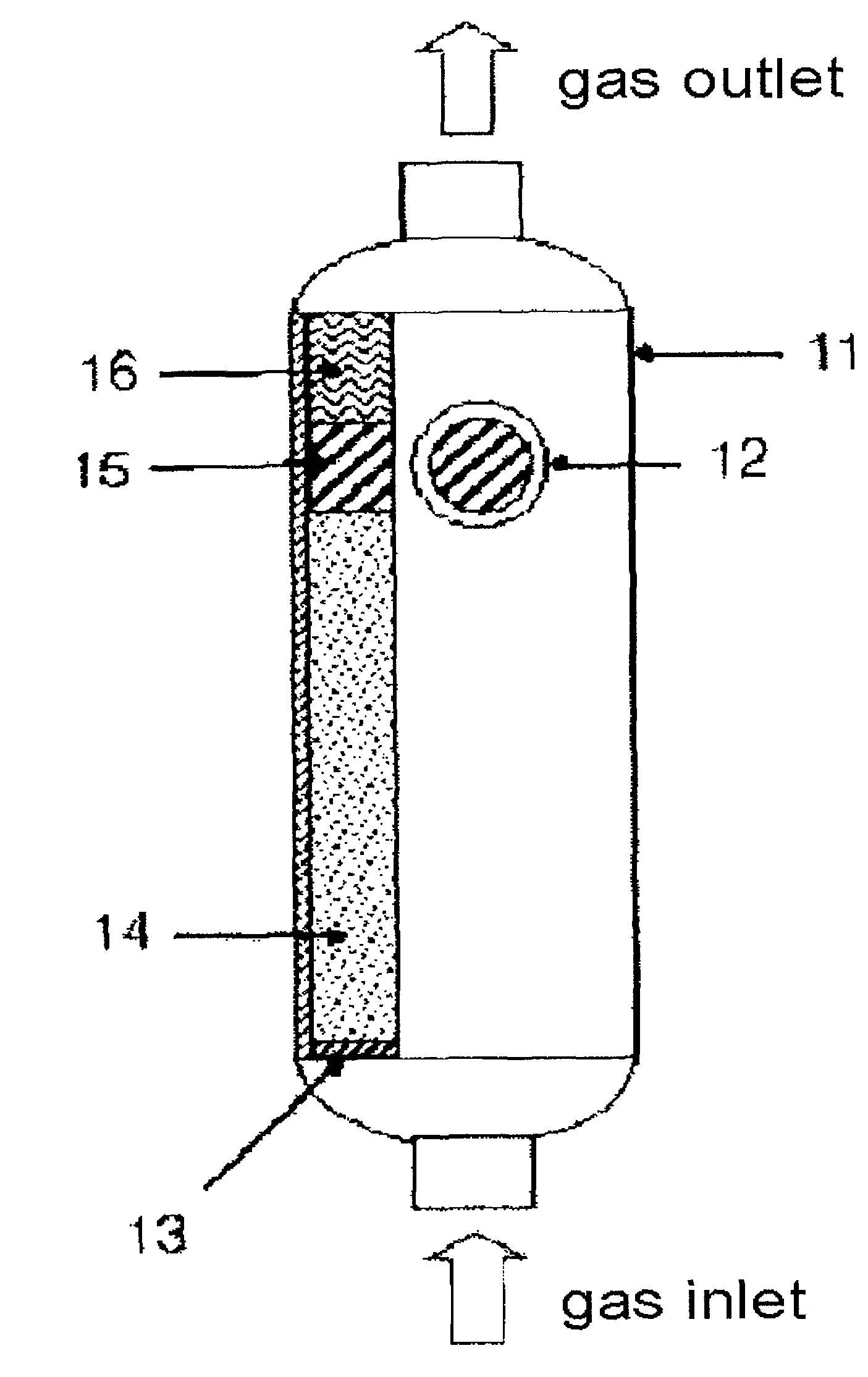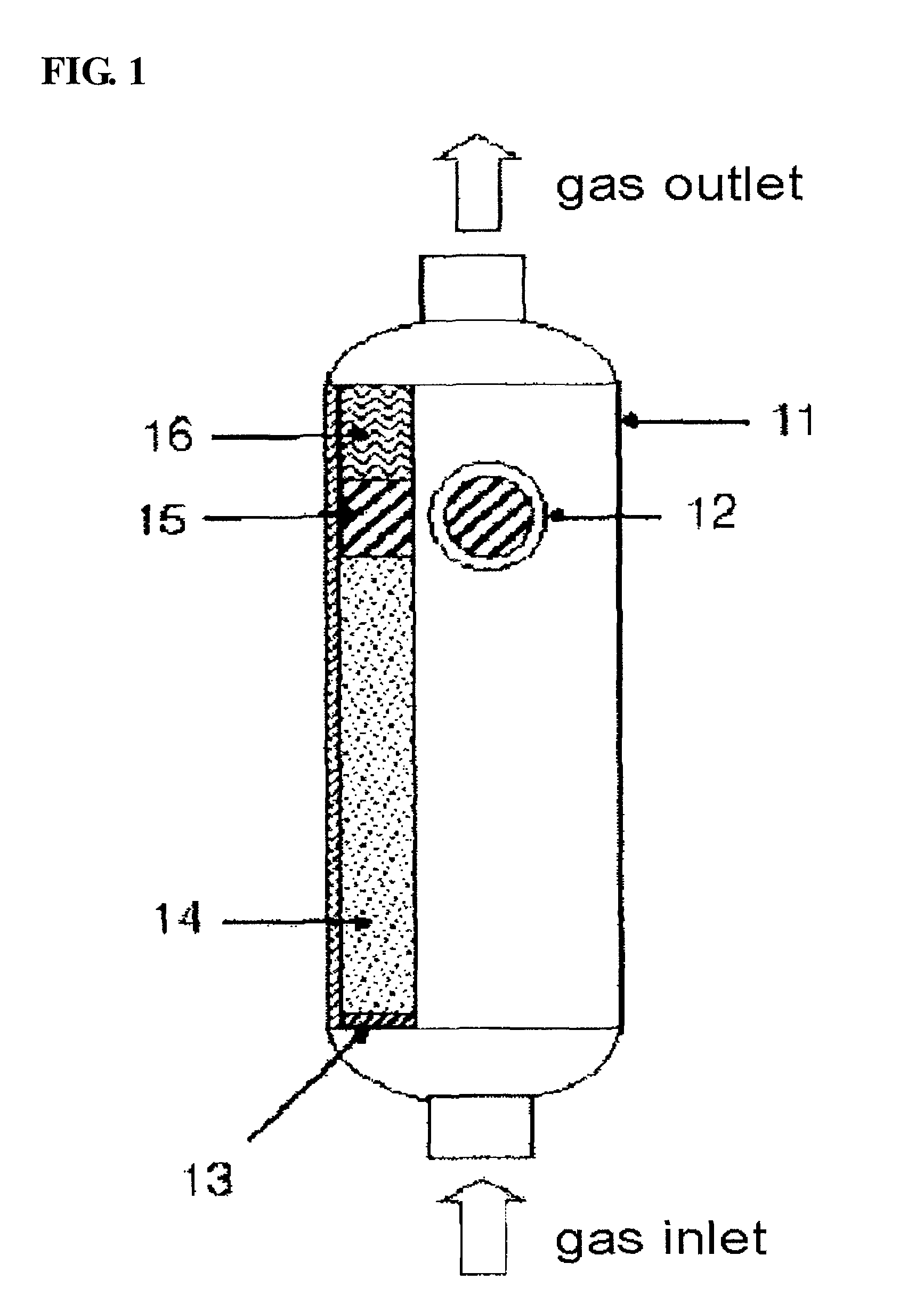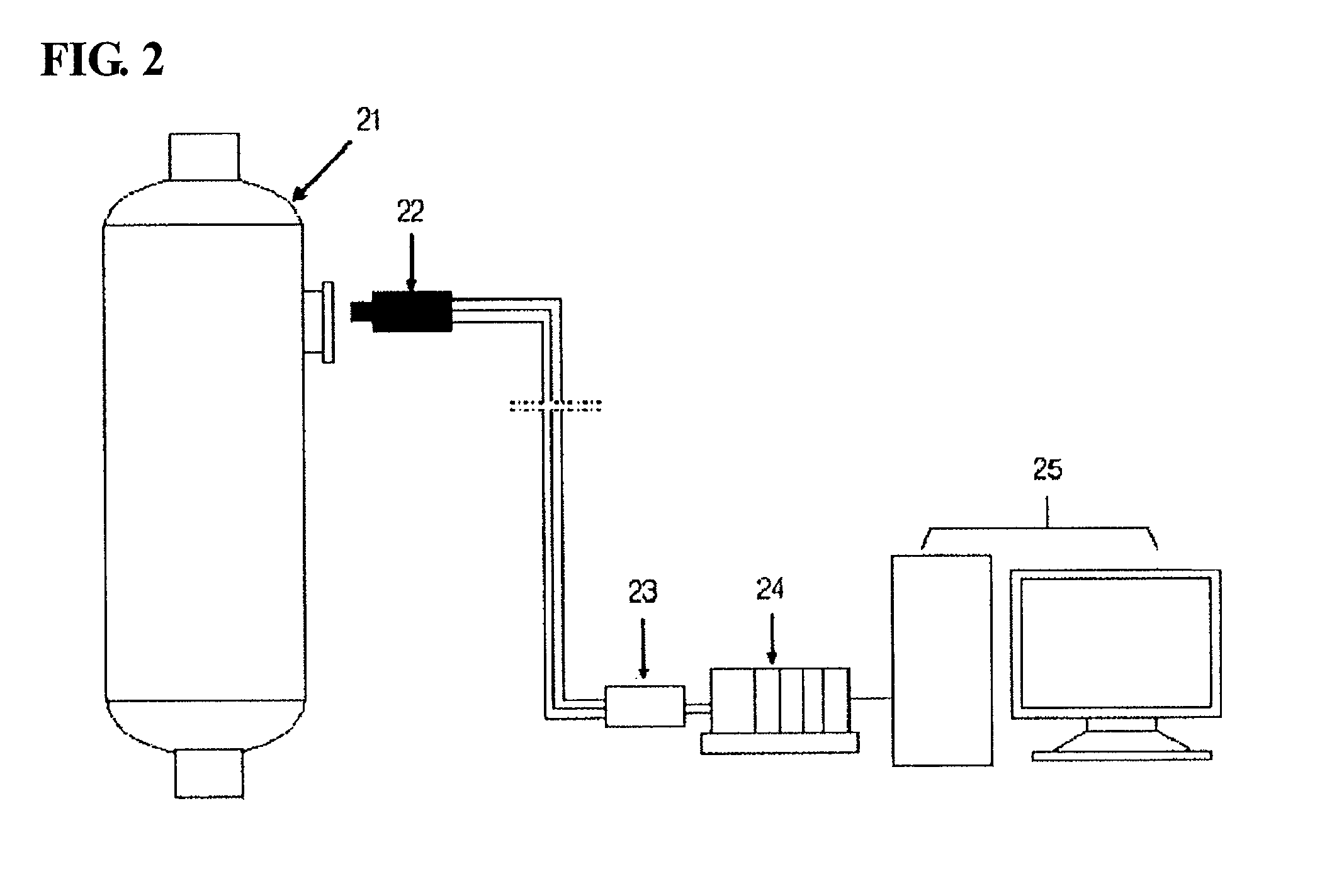Discoloration indicators for checking life span of desulfurization disorbent, and desulfurization reactor and desulfurization system comprising the same
a desulfurization disorbent and indicator technology, which is applied in the direction of liquid-gas reaction process, thin-film type liquid gas reaction, instruments, etc., can solve the problems of reducing the activity of catalysts, and easy poisoning of catalysts, so as to facilitate the replacement time of desulfurization adsorbents
- Summary
- Abstract
- Description
- Claims
- Application Information
AI Technical Summary
Benefits of technology
Problems solved by technology
Method used
Image
Examples
example 1
[0037]0.66 g of manganese nitrate was completely dissolved in 50 cc of deionized water, thus preparing a supporting solution. The prepared solution was supported on spherical silica gel having a 4˜6 mesh size. The supporting process was conducted using vacuum evaporation. While water was slowly evaporated, manganese nitrate was uniformly supported on the silica gel. Excess water was removed from the catalyst supporting solution at 65˜70° C. for 1 hour. The prepared discoloration indicator was dried at 110° C. for 1 hour, thus removing additional water from the interior of the pores. Consequently, the discoloration indicator containing 1 wt % of manganese was prepared.
example 2
[0038]0.32 g of silver nitrate was completely dissolved in 50 cc of deionized water, thus preparing a supporting solution. The prepared solution was supported on spherical silica gel having a 4˜6 mesh size. Then, subsequent preparation procedures were conducted in the same manner as in Example 1, thus preparing the discoloration indicator containing 1 wt % of silver.
[0039]In order to judge whether the prepared discoloration indicator was discolored due to contact with organic sulfur, 2 cc of the manganese-based discoloration indicator, in which manganese was supported, was loaded into a pyrex tube having an inner diameter of 10 mm. Thereafter, while a mixture gas of TBM and THT, having a concentration of 1 ppm, was allowed to flow at a flow rate of 30 cc per min, the color change before or after discoloration was observed. The same experiment was conducted for the silver-supported discoloration indicator. The results are given in Table 1.
[0040]
TABLE 1Color Change of Discoloration In...
example 3
[0043]An activated carbon adsorbent A (adsorption performance: 0.63 mol / L) having a 30˜50 mesh size and the manganese-based discoloration indicator of Example 1 were loaded into a pyrex tube having an inner diameter of 10 mm at a volume ratio of 7:3. As such, the total loading height was 5 cm. Into the reactor filled with the adsorbent and the discoloration indicator, a mixture gas in which THT and TBM were mixed at a molar ratio of about 7:3 and the total concentration of a sulfur compound in methane was adjusted to 10 ppm was allowed to flow at a flow rate of 100 cc per min. The optical fiber sensor was mounted to the middle portion of the discoloration indicator, that is, ½ of the total height from the lower surface of the discoloration indicator. After 650 hours of flow of the mixture gas, the lower portion of the discoloration indicator began to be discolored. After an additional period of about 50 hours, the discoloration indicator was discolored to blackish brown to ½ of the ...
PUM
| Property | Measurement | Unit |
|---|---|---|
| concentration | aaaaa | aaaaa |
| temperature | aaaaa | aaaaa |
| temperature | aaaaa | aaaaa |
Abstract
Description
Claims
Application Information
 Login to View More
Login to View More - R&D
- Intellectual Property
- Life Sciences
- Materials
- Tech Scout
- Unparalleled Data Quality
- Higher Quality Content
- 60% Fewer Hallucinations
Browse by: Latest US Patents, China's latest patents, Technical Efficacy Thesaurus, Application Domain, Technology Topic, Popular Technical Reports.
© 2025 PatSnap. All rights reserved.Legal|Privacy policy|Modern Slavery Act Transparency Statement|Sitemap|About US| Contact US: help@patsnap.com



